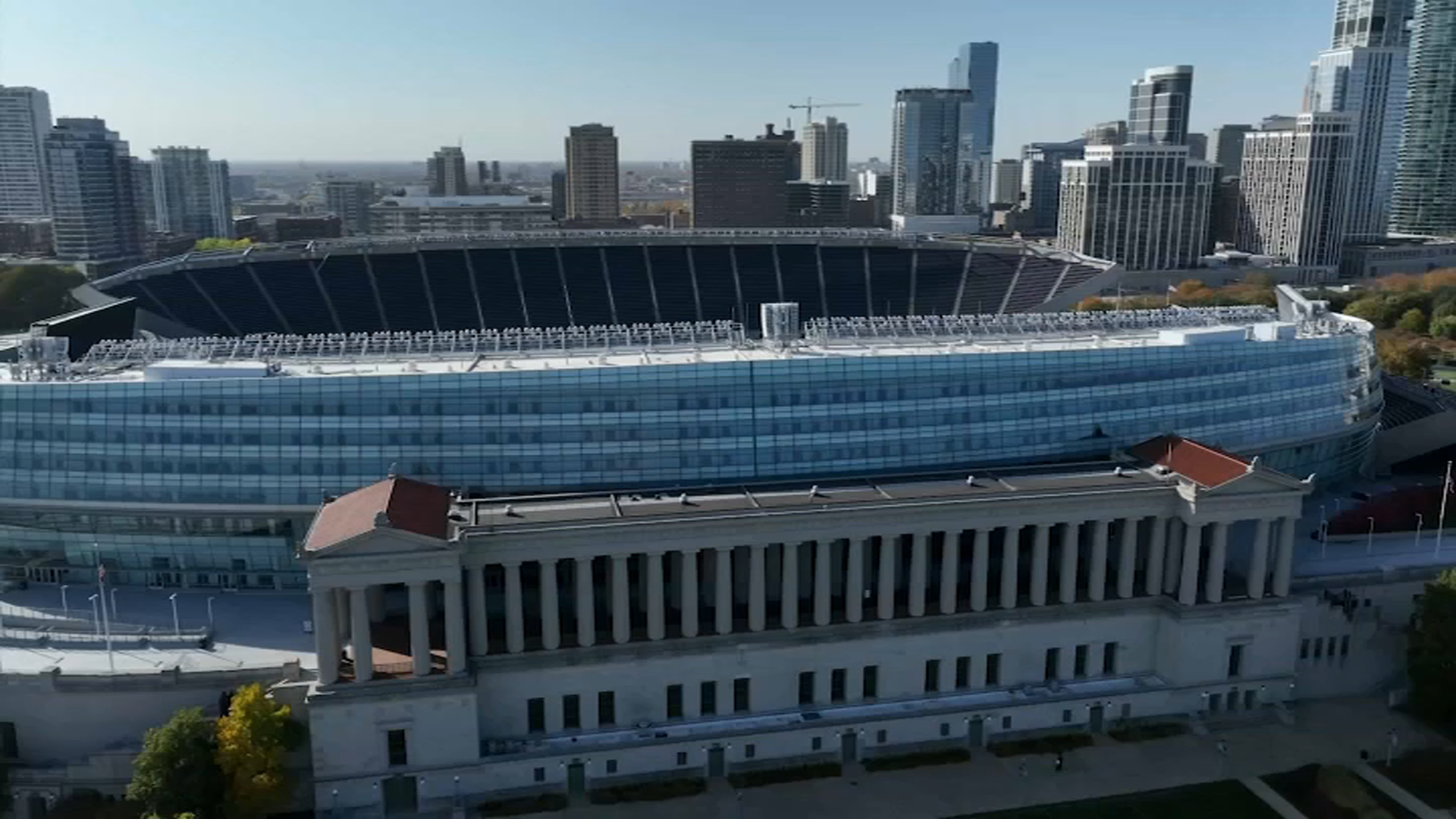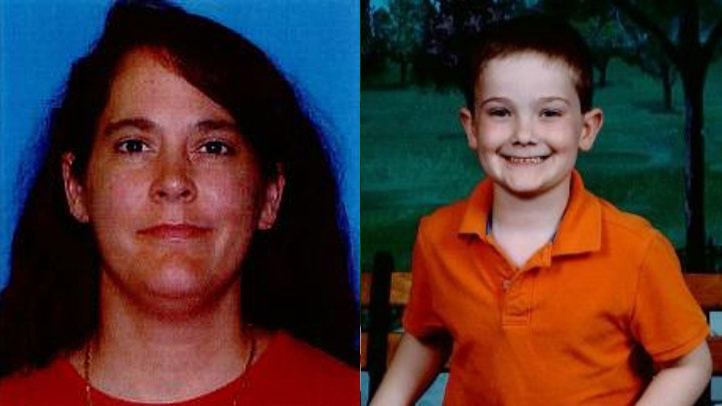Did you get enough sleep last night?
The U.S. Centers for Disease Control says everyone 18 and older should get a minimum of seven hours of sleep. Did you?
If not, you’re by no means alone. According to the CDC, a surprising number of adults don’t get those seven hours of sleep a night. Nationwide, this ranges from a low of 29 percent of adults in Colorado saying they don’t get enough sleep, all the way up to nearly 43 percent of adult residents in what is apparently the most sleep-deprived state in the union, West Virginia.
So NBC 5 Investigates analyzed local sleep data, drilling down to every ZIP code in the greater Chicago area, including northwest Indiana and southeast Wisconsin. We found some regions here that are even more sleep-deprived than those folks in West Virginia, with nearly half of adults in some Chicago-area neighborhoods and towns simply not getting that minimum of seven hours a night.
Feeling out of the loop? We'll catch you up on the Chicago news you need to know. Sign up for the weekly Chicago Catch-Up newsletter here.
Statewide, Illinois and Wisconsin are on the low side, with 33.5% and 33% of adults, respectively, saying they’re sleep-deprived, according to CDC numbers, while Indiana is doing a bit worse, with 37.9% of adults not getting enough sleep.
The consequences are broad: The CDC links insufficient sleep directly to diabetes, cardiovascular disease, obesity and depression. And indeed, when we looked at those other health factors across Chicagoland, we found similar patterns for those diseases as well.
So, first, the good news: Who gets the best sleep in the Chicago area? Here are the top 10 suburbs where people sleep the easiest, all at a better rate than even the "most-rested" state in the union, Colorado:
1. Lincolnshire, Illinois (just 26.1% of adult residents report being sleep-deprived, meaning they consistently get fewer than seven hours of sleep per night)
2. Oak Brook, Illinois (27.1%)
3. Lake Forest, Illinois (27.3%)
4. Highland Park, Hinsdale, and Kenilworth, Illinois (all tied at 27.4%)
7. Glencoe and Winnetka, Illinois (tied at 27.9%)
9. Deerfield, Illinois (28.2%)
10. Wilmette, Elmhurst and Western Springs, Illinois (all tied at 28.3%)
See a pattern? These are some of the wealthiest, whitest suburbs in the Chicago area. NBC 5 Investigates found that these towns also all have some of the area's highest rates of people with health insurance, people who get regular doctor checkups, and people who have regular health-screenings such as colonoscopies and cholesterol tests.
In all, we found 33 Chicago-area zip codes in the suburbs, where residents get more sleep, on average, than the very best sleepers in the city itself.
Within Chicago, here are the Top 10 zip codes and neighborhoods where residents sleep the easiest:
- Gold Coast (just 29.5% of residents reported that they got fewer than seven hours of sleep per night)
- Lincoln Park (29.9%)
- Lake View East (30.1%)
- Loop (north central area) (30.2%)
- Near East Side and Norwood Park West (30.7%) (tied)
- Wildwood (30.9%)
- Loop (east central area) (31.0%)
- Loop (west area) and River North (both 31.1%) (tied)
Once again – wealthier – and whiter – neighborhoods.
On the flip side, here’s the bad news: Here is a countdown of the 10 Chicago neighborhoods where we found the most people who aren’t getting adequate sleep:
10. Chatham (44.5% of adults say they get fewer than seven hours of sleep a night)
9. Grand Boulevard (44.6%)
8. Roseland (44.8%)
7. Gresham (45.2%)
6. South Shore (45.6%)
5. Hegewisch (west area) (46.8%)
4. Englewood (west area) (47.2%)
3. South Austin (47.4%)
1. Homan Square and Englewood (east area) (nearly half -- 48.4% -- of adults in both of these neighborhoods report fewer than seven hours of sleep per night – the least sleep of all Chicago neighborhoods).
Unfortunately, it’s easy to notice a pattern here as well. These neighborhoods are home to some of Chicago's highest populations of Black and low-income residents.
You’ll see the same patterns in the Chicago-area zip codes outside the city itself. Virtually half of each of these towns' residents say they get fewer than seven hours of sleep each night:
10. Hopkins Park, Illinois (45.7% of adults there say they get fewer than seven hours of sleep each night)
7. Hammond, Indiana (west area), Robbins, Illinois, and University Park, Illinois (46.1%) (tied)
6. Gary, Indiana (northwest area) (46.4%)
5. Gary, Indiana (northeast area) (46.7%)
4. Gary, Indiana (east central area) (49.1%)
3. Gary, Indiana (north central area) (49.6%)
2. Gary, Indiana (southeast area) (49.7%)
1. Gary, Indiana (central area) (50.4%)
That's right: Residents in nearly every area of Gary, Indiana, are more sleep-deprived than any town in the greater Chicago area and more sleep-deprived than even the hardest-hit neighborhoods on Chicago's South and West sides. And that has tough consequences:
NBC 5 Investigates found that Gary residents also suffer – more than residents from even the poorest Chicago neighborhoods or suburbs -- from diabetes, obesity, and coronary heart disease, three of the conditions that the CDC directly connects to a lack of sleep, as well as other serious conditions like arthritis, high blood pressure, asthma, COPD and kidney disease.
Perhaps worse, Gary residents more than anyone else report that their mental and physical health were not good for at least half of the past month. In fact, more than a third of Gary's adult residents say their general health is "fair" or "poor."
In general, we found that Lake County, Indiana, has some of the lowest life-expectancies in the entire area, especially the county's Black population, which lives only to an average age of 71 years old. A white person in Indiana's Lake County can expect to live for about five years more, to an average of 76 years old. That extends to 10 years more, 81 years old, for a Hispanic resident, and 16 years more, 87 years old, for someone of Asian descent.
Compare those numbers to the same statistics in McHenry County in Illinois, where Black residents have an average life expectancy of 83 years old, longer than the life-expectancy of white people in every one of the 21 counties we examined, where length of life ranged from 75 to 82 years old.
There are scores of health factors that could explain these extreme differences in life-expectancy, but it’s worth noting that in McHenry County, a relatively-low third of adult residents – barely more than a third -- report insufficient sleep, compared to nearly half of people in the hardest-hit areas of Lake County, Indiana.



